






The Phoenix Recovery Center Utah
Verified Center
This provider's information has been quality-checked by Recovery.com's Research Team for accuracy and completeness, including center verification through appropriate third-party organizations.
Treatment Focus
This center treats substance use disorders and mental health conditions. You'll receive individualized care catered to your unique situation and diagnosis, learn practical skills for recovery, and make new connections in a restorative environment.
Primary Level of Care
Offering intensive care with 24/7 monitoring, residential treatment is typically 30 days and can cover multiple levels of care. Length can range from 14 to 90 days typically.
Treatment Focus
This center treats substance use disorders and mental health conditions. You'll receive individualized care catered to your unique situation and diagnosis, learn practical skills for recovery, and make new connections in a restorative environment.
Primary Level of Care
Offering intensive care with 24/7 monitoring, residential treatment is typically 30 days and can cover multiple levels of care. Length can range from 14 to 90 days typically.
Provider's Policy
Depending on your specific plan benefits, your insurance may cover all, or some of your mental health or chemical dependency treatment at The Phoenix Recovery Center. They are in network with most local plans and major carriers. The Phoenix Recovery Center accepts Select Health, Aetna, Cigna, BlueCross BlueShield, Anthem, CareFirst, ComPsych, First Health, Highmark, Tricare, and United Healthcare
The Phoenix Recovery Center Utah
The Phoenix Recovery Center Utah
About The Phoenix Recovery Center Utah
The Phoenix Recovery Center in South Jordan, Utah, guides clients toward a fulfilling life free of addiction and mental health challenges. With a passionate team at the helm, The Phoenix prioritizes brain healing and skill-building to help clients effectively manage symptoms and rediscover their own dreams. With a full continuum of care– residential, partial hospitalization (PHP), intensive outpatient (IOP), and general outpatient programs– each treatment plan is customized to suit the specific needs of each individual, whether primary substance use, mental health, or a mix of both. The Phoenix combines pharmacological support with research-backed therapies to encourage lasting change.
Unleash Potential for Growth and Change
Rooted in the belief that each individual has the potential for growth and change, The Phoenix focuses on evidence-based recovery and mental health outcomes. While they offer primary substance use and mental health care, they also provide dual diagnosis treatment, which is vital for those facing both addiction and mental health challenges. Drawing from clinical research, The Phoenix recognizes that finding and pursuing meaning in life can help catalyze positive change for those with addiction and mental health concerns. To treat all aspects of a client’s well-being, they integrate cognitive behavioral therapy (CBT), mindfulness, and experiential therapies like nature-immersion therapy. Their approach encourages self-understanding, resilience, and the pursuit of fulfillment.
Discover Hope at The Phoenix
Among the many impactful services offered at The Phoenix, they offer a trauma-informed program to address the struggles veterans face and provide targeted treatment for their recovery. For any individual who is grappling with severe addiction, The Phoenix offers medication-assisted treatment to ease withdrawal symptoms as they recover. They’re also committed to supporting and offering a safe space for individuals who are experiencing suicidal thoughts. Whether a young adult, who is building a foundation for life, or a seasoned professional looking to reclaim their life, their age-inclusive programs can help. The Phoenix’s programs not only prioritize helping clients overcome addiction, but also empowering them to rediscover purpose and joy.
Focus Fully on Healing
The Phoenix offers a welcoming, urban space where clients can feel at ease on their recovery journey. Their shared bedrooms emphasize the benefits of community. The on-site fitness center gives clients a place to work on their physical and mental wellbeing, while a chef creates wholesome meals to support both body and mind. Transportation is provided for any off-site activities, allowing clients to truly relax and feel nurtured as they focus on the essential work of recovery.

Highlights from the Center
Highlights
These highlights are provided by and paid for by the center.
Insurance Accepted
Co-Occurring Disorders Treatment
Licensed for Both Addiction & Mental Health
Trauma Treatment
Center Overview
Treatment Focus
This center treats substance use disorders and mental health conditions. You'll receive individualized care catered to your unique situation and diagnosis, learn practical skills for recovery, and make new connections in a restorative environment.
Joint Commission Accredited
The Joint Commission accreditation is a voluntary, objective process that evaluates and accredits healthcare organizations (like treatment centers) based on performance standards designed to improve quality and safety for patients. To be accredited means the treatment center has been found to meet the Commission's standards for quality and safety in patient care.
Insurance Accepted
Cash Pay Rates
Estimated Cash Pay Rate
Center pricing can vary based on program and length of stay. Contact the center for more information. Recovery.com strives for price transparency so you can make an informed decision.
Meet Your Care Team

Alisiah McCardell
LCSW

Andy Torgersen
CSC

Austin Roderick
Admission Coordinator

Ben Hutchins
Residential Director
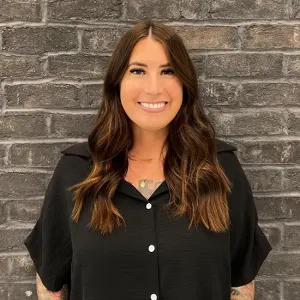
Candice Taylor
Clinical Director
LCSW

Dani Glover
CSW

Gillian Bailey
Outreach Director

Jake Ritchie
Assistant Male Manager
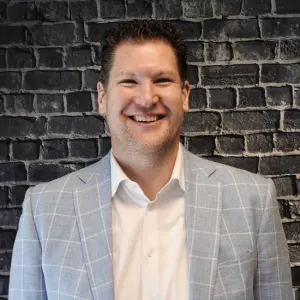
Jake Shoff
CEO

Jenessa Vincent
Administrative Assistant/CSC

Jessica Miyazki
AMFT

Joe Dunne
ACMHC
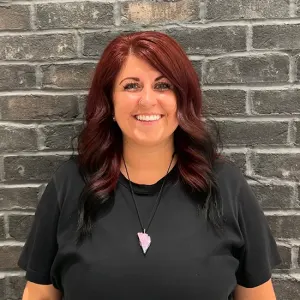
Kenzie Stokes
Assistant Female Manager

Kindrick Hector
LSUDC
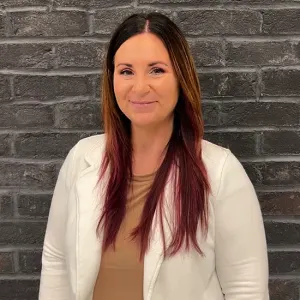
Krissi Hutchins
Executive Director

Kyle Griffin
Admissions Coordinator
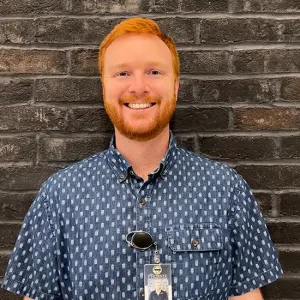
Lucas Robinson
Medical Director

Lucy Larsen
Phlebotomist
MA
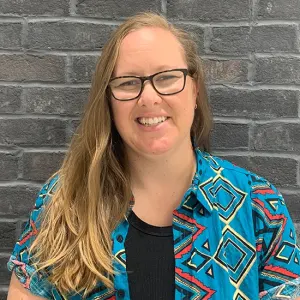
Megan Tidwell
ACMHC
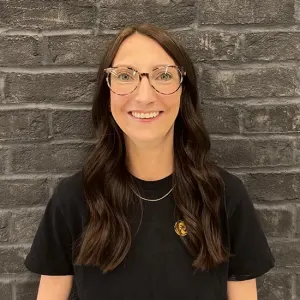
Melanie Leetham
Assistant Residential Director
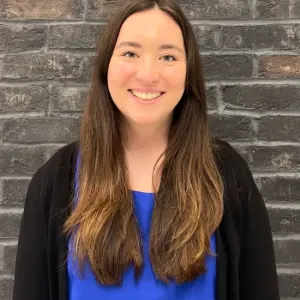
Michelle Jarest
CSW

Nick Moore
ACMHC
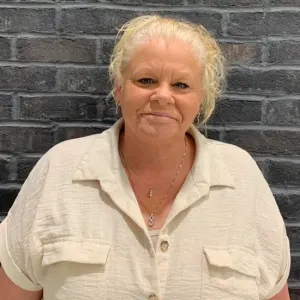
Robin O’Dell
AMFT

Stacy Rawlings
Therapeutic Recreational Technician

Tiffany Kelsh
CSC

Troy Jolley
CFO




Levels of Care








Your Care Options
Specializations
Alcohol
Using alcohol as a coping mechanism, or drinking excessively throughout the week, signals an alcohol use disorder.
Anxiety
Anxiety is a common mental health condition that can include excessive worry, panic attacks, physical tension, and increased blood pressure.
Co-Occurring Disorders
A person with multiple mental health diagnoses, such as addiction and depression, has co-occurring disorders also called dual diagnosis.
Depression
Symptoms of depression may include fatigue, a sense of numbness, and loss of interest in activities. This condition can range from mild to severe.
Drug Addiction
Drug addiction is the excessive and repetitive use of substances, despite harmful consequences to a person's life, health, and relationships.
Evidence-Based
A combination of scientifically rooted therapies and treatments make up evidence-based care, defined by their measured and proven results.
Family Therapy
Family therapy addresses group dynamics within a family system, with a focus on improving communication and interrupting unhealthy relationship patterns.
Medication-Assisted Treatment
Combined with behavioral therapy, prescribed medications can enhance treatment by relieving withdrawal symptoms and focus patients on their recovery.
Who We Treat
Men and Women
Men and women attend treatment for addiction in a co-ed setting, going to therapy groups together to share experiences, struggles, and successes.
Approaches
Evidence-Based
A combination of scientifically rooted therapies and treatments make up evidence-based care, defined by their measured and proven results.
Individual Treatment
Individual care meets the needs of each patient, using personalized treatment to provide them the most relevant care and greatest chance of success.
Personalized Treatment
The specific needs, histories, and conditions of individual patients receive personalized, highly relevant care throughout their recovery journey.
Twelve Step
Incorporating spirituality, community, and responsibility, 12-Step philosophies prioritize the guidance of a Higher Power and a continuation of 12-Step practices.
Therapies
Meditation & Mindfulness
A practiced state of mind that brings patients to the present. It allows them to become fully aware of themselves, their feelings, and the present moment.
Mindfulness Therapy
This ancient practice can be mental, emotional, and even spiritual. In meditation, you focus your attention on the present moment without judgement.
Art Therapy
Visual art invites patients to examine the emotions within their work, focusing on the process of creativity and its gentle therapeutic power.
Family Therapy
Family therapy addresses group dynamics within a family system, with a focus on improving communication and interrupting unhealthy relationship patterns.
Life Skills
Teaching life skills like cooking, cleaning, clear communication, and even basic math provides a strong foundation for continued recovery.
Medication-Assisted Treatment
Combined with behavioral therapy, prescribed medications can enhance treatment by relieving withdrawal symptoms and focus patients on their recovery.
Conditions We Treat
Schizophrenia
Schizophrenia is a serious mental health condition that causes hallucinations, delusions, and disordered thinking.
Grief and Loss
Grief is a natural reaction to loss, but severe grief can interfere with your ability to function. You can get treatment for this condition.
Personality Disorders
Personality disorders destabilize the way a person thinks, feels, and behaves. If untreated, they can undermine relationships and lead to severe distress.
Anger
Although anger itself isn't a disorder, it can get out of hand. If this feeling interferes with your relationships and daily functioning, treatment can help.
Anxiety
Anxiety is a common mental health condition that can include excessive worry, panic attacks, physical tension, and increased blood pressure.
Bipolar
This mental health condition is characterized by extreme mood swings between depression, mania, and remission.
Codependency
Codependency is a pattern of emotional dependence and controlling behavior. It's most common among people with addicted loved ones.
Depression
Symptoms of depression may include fatigue, a sense of numbness, and loss of interest in activities. This condition can range from mild to severe.
Obsessive Compulsive Disorder (OCD)
OCD is characterized by intrusive and distressing thoughts that drive repetitive behaviors. This pattern disrupts daily life and relationships.
Substances We Treat
Alcohol
Using alcohol as a coping mechanism, or drinking excessively throughout the week, signals an alcohol use disorder.
Benzodiazepines
Benzodiazepines are prescribed to treat anxiety and sleep issues. They are highly habit forming, and their abuse can cause mood changes and poor judgement.
Co-Occurring Disorders
A person with multiple mental health diagnoses, such as addiction and depression, has co-occurring disorders also called dual diagnosis.
Cocaine
Cocaine is a stimulant with euphoric effects. Agitation, muscle ticks, psychosis, and heart issues are common symptoms of cocaine abuse.
Drug Addiction
Drug addiction is the excessive and repetitive use of substances, despite harmful consequences to a person's life, health, and relationships.
Ecstasy
Ecstasy is a stimulant that causes intense euphoria and heightened awareness. Abuse of this drug can trigger depression, insomnia, and memory problems.
Heroin
Heroin is a highly addictive and illegal opioid. It can cause insomnia, collapsed veins, heart issues, and additional mental health issues.
Psychedelics
Hallucinogenic drugs—like LSD—cause euphoria and increased sensory experiences. When abused, they can lead to depression and psychosis.
Languages
Aftercare
Care Designed for Your Needs
Personal Amenities
Amenities
Activities
Yoga
Yoga is both a physical and spiritual practice. It includes a flow of movement, breathing techniques, and meditation.






